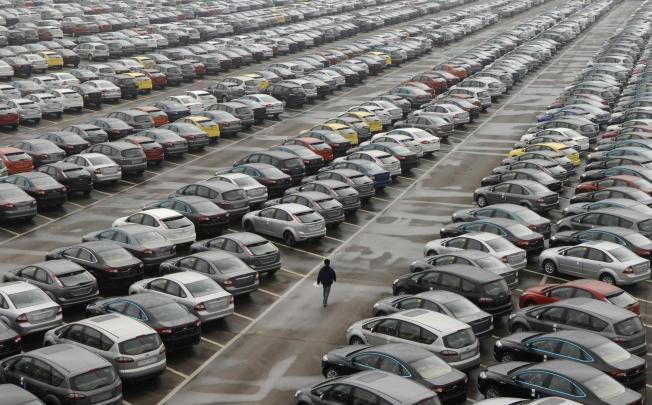Kazakhstan’s auto market struggles as Russia's economic crisis spills out

By Sara Rajabova
Kazakhstan’s largest trade partner – Russia's economic slump negatively impacted the automobile industry of this Central Asia country.
The macroeconomic situation of Kazakhstan has started to deteriorate in autumn following Russia's economic recession due to the Western sanctions over the Ukrainian crisis, and a significant drop in oil prices.
The weakening of the ruble had a strong negative impact on the Kazakh market.
Kazakhstan’s auto market first experienced difficulty when its economy began to slow down as a result of Russia's troubles. Reports that devaluation would hit the national currency-tenge made matters worse, putting the auto industry in a state of alert.
Rumors of devaluation have increased in February as the tenge devalued twice in the last six years, both times in February. The Central Asian economy experienced a 22 percent devaluation of its currency in February 2009 and then a one-step 19 percent devaluation of its currency in 2014, also in February. However, the government could prevent the tenge’s sharp devaluation, which could dramatically worsen the economic situation in the country.
Following, the worsened economic situation in the country, some Kazakhs have rushed to the Russian automotive market in order to buy suddenly depreciated cars.
This had a negative impact on the automotive industry in Kazakhstan. Kazakh car dealers suffered great losses from such a trade "tsunami" in Russia. They had to lower the price of cars by 20-30 percent in order to save their business from collapse.
The Kazakh government has allocated 20 billion tenge ($108 million) to support its domestic auto industry as an anti-crisis measure.
Andrei Lavrentiev, the president of the Association of Kazakhstan Auto Business, said in an interview with Kazakh media that the money will be primarily used to subsidize loans for buying domestically-assembled vehicles.
“During the first half of this year, we expect to sell about 30 percent of production volumes through the subsidy scheme, which will offer favorable conditions for consumers,” Laventiev said.
Although the car dealers decreased prices, some financial players have increased their interest rates.
Realizing that in the pursuit of cheap cars, the individuals will take on new loans, second-tier banks raised interest rates by 6 percent. This fact also negatively affected the auto market in the country as Kazakhs still eye the Russian car market.
The Kazakh government also struggles with so-called "gray" (illegal) import of motor vehicles to Kazakhstan.
Lavrentiev said the share of ‘gray’ dealers accounted for about 25 percent of all sales in the national auto market.
“The largest share of ‘gray’ market is represented by Russian companies that do not pay taxes, do not invest in infrastructure, or do not develop the servicing network,” he said.
Lavrentiev went on to say that the Association of Kazakhstan Auto Business proposes to introduce a temporary license to tackle the problem.
“We and our Russian colleagues are saying that all deliveries of vehicles should only continue through official channels to avoid consumer fraud and trademark violation,” he said.
--
Sara Rajabova is AzerNews’ staff journalist, follow her on
Twitter: @SaraRajabova
Follow us on Twitter @AzerNewsAz
